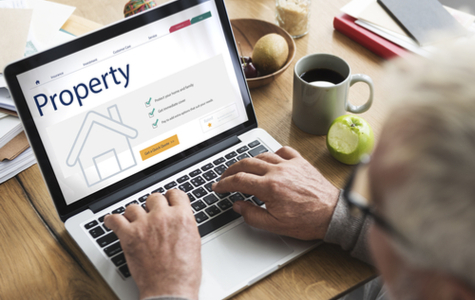
Buying a property is one of the biggest purchases you can make. It’s therefore essential you manage your finances properly and start to save for a deposit as soon as you can. The larger your deposit the better, and the stronger position you’ll be in when the time comes to speak to a mortgage broker or lender.

How much does my deposit need to be?
The average first-time buyer puts down a deposit of 17%, but it is possible to get some mortgages with a minimum deposit of just 5% of a property’s value. This means that for a house costing £232,530, you would need a deposit of at least £11,626.50.
Having a big deposit can benefit you in two ways. Firstly, you may be able to borrow more from a mortgage lender meaning you can purchase a higher value property (this will also depend on other factors aside from the deposit such as your ability to meet the monthly payments). Secondly, you may choose to put down a big deposit on a property of less value. This will give you more equity with a smaller mortgage, a better loan-to-value ratio, and therefore, a lower interest rate.

How to maximise your savings
Whether you’re about to start saving for a deposit, or you’ve been putting money away for a while, we want to help you by sharing our top deposit saving tips.
- Save in the right places – Ditch the piggy bank and opt for a Help to Buy ISA. This government scheme for first-time buyers will see your savings topped up by 25%. So, for every £100 you save, you’ll receive £25 extra, up to a maximum government contribution of £3,000. If you’re going to be buying with someone else, they too can have a Help to Buy ISA, so you could benefit even more by saving and planning together from the start.
- Change your current living arrangements – If you’re currently renting, you need to do all you can toreduce your costs so that you can save more money for your deposit each month. Consider moving back into your parents, or moving to a property with cheaper rent or overheads.

- Rent a room – If your tenancy allows you to take in a lodger, this is something you might want to consider. Whether you choose to share your home with someone long-term or short-term, is a decision only you can make.
- Have a budget – Every penny counts, so give yourself targets to meet. A spreadsheet showing your incomings and outgoings each month could help. It’s vital you spend within your means, so look at reducing your debts, not increasing them. If you have credit cards/loans, are you on the best rate available or are you paying over the odds.

- Make sacrifices – Save money by swapping things for low-cost or free alternatives.You might love your car, but you’ll love your new home more, so try switching to a cheaper, more cost-effective model. You could ditch your gym membership and opt for jogging or cycling outdoors instead. Perhaps say goodbye to your TV subscription service or other luxuries you don’t really need.
- Ask the bank of mum and dad – Your parents may be willing to contribute towards your deposit, either by giving you the money as a gift or by allowing you to pay it back over time with no/little interest.

Consider shared equity schemes and Help to Buy – You might not need as big a deposit as you think if you’re buying a new build home. A New Homes Mortgage Adviser (NHMA) is best placed to advise you on the sorts of mortgage deals out there. Additionally, the developer or Government may also be willing to lend you up to 20% of your deposit (up to 40% if you’re living in London) as long as you can put down a 5% deposit.

This guide to saving for a mortgage was produced in collaboration with L&C, the UK’s leading fee-free mortgage experts.



